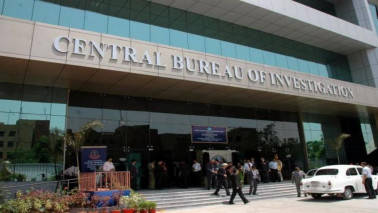The proposal that no notional rent will be levied on second self-occupied homes and that capital gains up to Rs 2 crore can be used to buy two houses, is expected to boost demand for housing.
Budget 2019 is aimed at providing increased tax exemptions to the middle class home buyers which means more money at their disposal that may encourage them to consider investing in real estate. It seeks to provide relief to real estate builders by extending some of the existing benefits.
By proposing tax rebates for those earning Rs 5 lakh, Budget 2019 has tried to improve the purchasing power of the middle class to invest in homes. Also, the proposal that no notional rent will be levied on second self-occupied homes and that capital gains up to Rs 2 crore can be used to buy two houses, is expected to boost demand for housing.
The government also reiterated its intent to further rationalise GST rates on purchase of residential homes by referring the decision to a group of ministers for recommendations.
These proposals have brought cheer to prospective homebuyers and those who own or wish to more than one property but the over 3 lakh homebuyers stuck with unfinished projects for over a decade are an unhappy lot. They have expressed disappointment over the government not provisioning for a stressed asset fund to complete the projects and have said that if their demand is not met, they would exert the non-of-the above (NOTA) option during elections.
As for real estate developers, the tax on notional rental income on unsold inventory will not apply for two years from completion, as against the exemption of one year earlier. Moreover, the 100 percent tax exemption (benefits under Section 80-IBA) on profits from affordable housing projects will now be available for projects registered till March 2020.
This extension of tax benefits until March 2020 will allow more developers to launch affordable housing projects. The extension of exemption of tax on notional rent on unsold inventories for two years is also expected to help builders' cash flows, said real estate experts.
Income tax on notional rental income on a second self-occupied house to be done away with
There will now be no tax on house rents up to Rs 2.4 lakh from the previous limit of Rs. 1.8 lakh. This can attract more investors to buy second homes for earning rental income.
"With exemption on notional rent for self-occupied second homes, the government has addressed a significant pain point for the middle class, particularly migrants with dependant parents. Along with capital gains exemption for up to two houses, this will allow people to have a diversified portfolio for real estate investment - which will spur demand across the country, including Tier-2 and Tier-3 cities," said Anuj Puri of ANAROCK.
What if a person has three houses? Hemal Mehta, partner, Deloitte India, said that if a person has three house houses, out of which he/she lives in one and the other two are not given on rent, then the third one will be considered as deemed to be let out and taxed accordingly. The second house will be considered as a 'self-occupied' house and no income tax will be levied.
This will also encourage developers to launch new projects.
"With no notional rent levied on second self-occupied homes and the capital gains up to Rs 2 crore which can be used for buying up to two houses, will provide much needed impetus to the demand for homes. The deductions announced under Section 80IBA have been extended to projects which will be registered by March 2020-this again paves the way for new launches," said Sanjay Dutt, MD & CEO, Tata Realty Limited.
Meanwhile, Niranjan Hiranandani, President, NAREDCO, also welcomed the move.
"For families which have more than one house – one in the home-town and the other in a location where family members work or have a job - currently, income tax on notional rent is payable in such cases (if one has more than one self-occupied house). Considering the difficulty of the middle- class having to maintain families at two locations on account of their job, children’s education, care of parents, the Finance Minister mentioned a proposal to exempt levy of income tax on notional rent on a second self-occupied house," he said.
More money in the hands of homebuyers
For the demand side, the budget has ensured better liquidity and lower tax burden on the purchase of homes. The benefit of rollover of capital gains has been increased from one house to two houses, up to 2 crore (once in lifetime), is a tremendous step by the government that will boost sales in both primary and secondary markets.
According to Shishir Baijal, Chairman and Managing Director, Knight Frank, the changed direct tax implications including exemption of taxes Rs 5 lakh per annum automatically increases the disposable income, especially for the middle-income groups.
“We believe this step along with the increased standard deduction limit will in some way translate to an improved affordability for house purchase, thus aiding demand for the sector. A back of the envelope calculation on the new standard deduction rates and other direct tax sops give us a figure of an annual taxation exemption of almost Rs 7- 9 lakh per annum. We believe that a fair part of the savings from this could be channelised towards real estate. Additionally, the provision of increasing the number of self-occupied properties from one house earlier to two houses now will augment the house purchase decision for people supporting families in another city/towns," he said.
Anshuman Magazine, Chairman & CEO, India, South East Asia, Middle East & Africa, CBRE, said that the announcement for full tax rebate up to an income of Rs 5 lakh will provide homebuyers more disposable income and open more investment opportunities. Investment itself has been made attractive as interest income above Rs 40,000 will now be tax free. Similarly, raising gratuity limit from Rs 10 lakh to Rs 30 lakh will create possibilities for more investment options.
Major misses in Budget 2019
The Budget did not address the issue of clearing the NBFC deadlock which continues to hold the real estate sector to ransom.
There was no announcement concerning creation of a stressed-asset fund to bail out distressed homebuyers. "The government should also take steps to create a stressed asset fund for home buyers to deal with the issue of stalled and incomplete projects," said Sanjay Chatrath, executive director (NCR), Colliers International India.
Amit Modi, director ABA Corp and VP CREDAI western UP, said that the builder community would have preferred creation of a single window clearance mechanism for all real estate projects akin to the one extended to the movie industry.
vandana.ramnani@nw18.comIndian Union Budget 2019: What does the FM have up his sleeve in the run up to the General Elections? Click here for live Budget 2019 news, views, analyses and more.






















